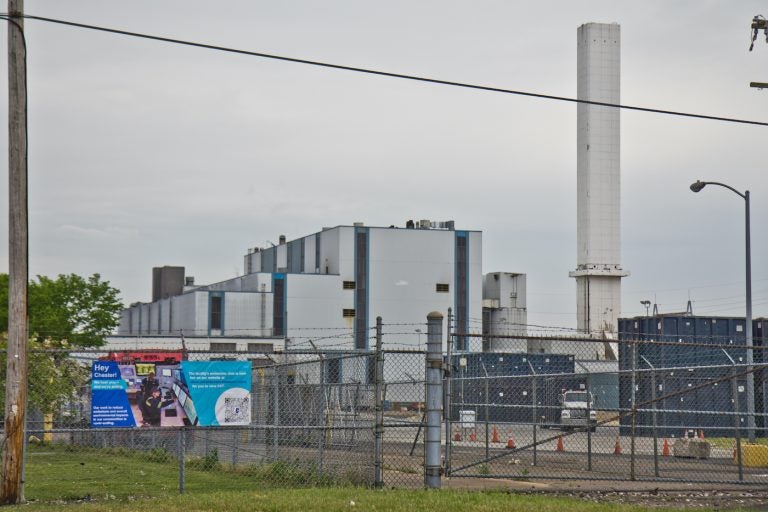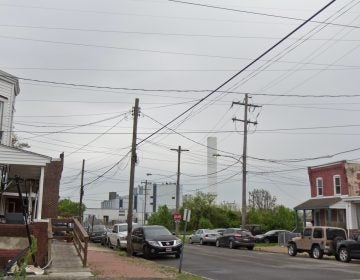Coming 2023: Delaware County’s first zero waste report. Will it address incinerator use?
Delco will make the report public in the first quarter of '23. The big question is what it will say — if anything — about the county’s use of incineration in Chester.

The Covanta incinerator, a waste-to-energy facility that burns trash from Delaware County, Philadelphia, New York City, in Chester, Pa. (Kimberly Paynter/WHYY)
Got a question about life in Philly’s suburbs? Our suburban reporters want to hear from you! Ask us a question or send an idea for a story you think we should cover.
Delaware County wants to get to zero solid waste.
Delaware County, home to one of the largest incinerators in the country, contracted Zero Waste Associates to help it figure out how to reduce the amount of trash that ends up in landfills and incinerators.
After a year of public workshops, listening sessions, and sit-downs with advisory committees, Zero Waste Associates is finishing up its first report. The public will see it in early 2023.
Delaware County Council member Elaine Schaefer said the first draft of the report contains “good guidance” on where the county can go.
“There are a lot of ways to skin this onion. It’s all about conserving our resources, reducing what we’re throwing out, increasing the recycling of what we do have to throw out, and then managing waste that can’t be recycled in environmentally smart ways,” Schaefer said.
According to Schaefer, the initial findings reveal a shift to zero waste policies will be both environmentally and economically beneficial to the county.
“Our solid waste is an obvious place where we can make tremendous improvement and we are all committed to making the investment,” Schaefer said.
Pennsylvania law requires counties to formulate a plan for solid waste management every 10 years.
Right now, Delco takes its waste to transfer stations and either burns it at the Covanta incinerator in the predominantly Black city of Chester or sends it to a landfill.
Despite constant accusations of environmental racism, the Delaware County Solid Waste Authority approved a new 3-year contract with Covanta.
For those seeking some sort of immediate remedy in the report, it doesn’t appear to be the main priority.
“We are trying to move away from incineration as a county, as a policy matter, but it costs a lot of money to truck your waste to a landfill,” Schaefer said.
However, Schaefer said, the county plans on making significant investments in its waste transportation infrastructure and approach. This would theoretically allow the county to be more equipped for recycling and modern waste management.
“In fact, we just applied for a $4 million federal grant to incorporate a composting facility in one of our transfer stations. So some of it is already happening even before the report comes out. But I would imagine as we sit down to do the budget for 2024, in the middle of next year, we will be incorporating many of the recommendations in terms of staffing and approach of how we handle our waste,” Schaefer said.
WHYY is your source for fact-based, in-depth journalism and information. As a nonprofit organization, we rely on financial support from readers like you. Please give today.






